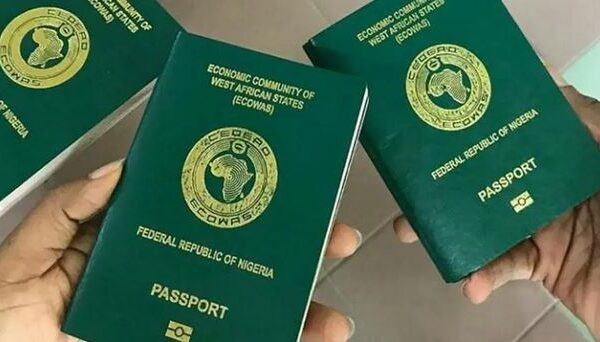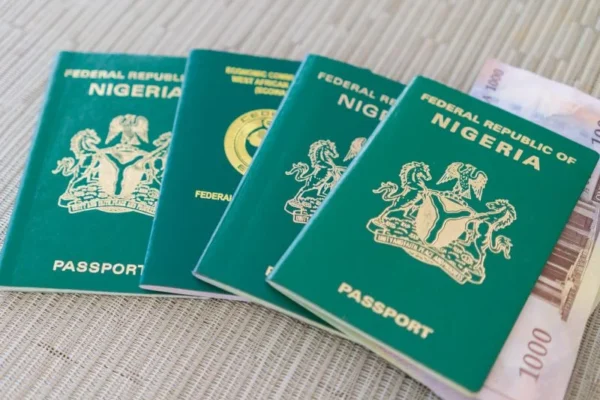
Tunji-Ojo Condemns Passport Processing Delays During Surprise Visit To Immigration Office
Minister of Interior Olubunmi Tunji-Ojo carried out a surprise inspection of the Nigerian Immigration Service passport office in Gwagwalada, Abuja, on Tuesday, where he openly condemned delays in passport processing and cautioned applicants against making unofficial payments. During the visit, the minister toured the VIP and Children’s section and held direct conversations with immigration officials and applicants. He questioned why applicants were still waiting hours after the office was expected to be fully operational. “I don’t want to hear that you are collecting money for diesel or paper. Nigerians have paid for their passports completely. Serve them diligently,” Tunji-Ojo said. He expressed dissatisfaction that only a small number of applicants had been attended to well into the day, despite the section being designed to provide faster services. “So it means that by 9:30am, I expect to see at least one or two applicants here. Because I can see some people waiting downstairs, and our responsibility is to be efficient,” he said. The minister further queried officials on the slow pace of enrolment and biometric capturing, noting that each applicant should be processed within minutes. “How long does it take to do an enrolment? Three minutes. So three times seven, that is twenty-one minutes,” he stated. Immigration officers disclosed that although the office was scheduled to begin operations by 8am, activities only commenced around 9am after the generator was switched on. “We are supposed to open by eight,” an official said, explaining that power was restored after applicants had already arrived. Tunji-Ojo criticised the practice of completing enrolment for all applicants before starting biometric capturing, insisting both processes should run at the same time to reduce waiting periods. “It doesn’t make sense to me. People are there waiting. Some of these people still need to go to work. Some of these people have other things to do,” he said. “So why must you wait until you enrol everybody before you do capturing?” he added. Describing the situation as unacceptable, the minister said delays undermined effective service delivery. “You are wasting people’s precious time. Time is money. Time is expensive. It is unacceptable,” he said. He also faulted the underuse of the VIP and Children’s section, noting that applicants waiting in other areas could have been redirected to ease congestion. “It will not cost you anything if you use this place for them,” Tunji-Ojo said. The minister concluded by stressing that immigration officers must uphold efficiency and fairness in service delivery. “Nigeria has no VIP. When you wear this uniform, you wear a uniform of sacrifice. You are here to work for the people,” he said. Interior minister, Hon. Olubunmi Tunji-Ojo, paid an unscheduled visit to the Nigeria Immigration Service office, Gwagalada, Abuja. pic.twitter.com/dkk2bU954g — Elelu Ayoola (@EleluAyoola) January 20, 2026






